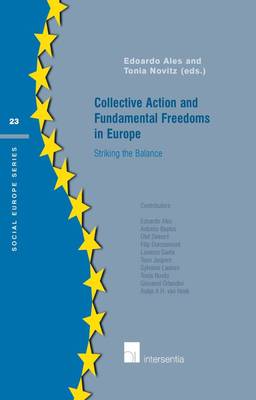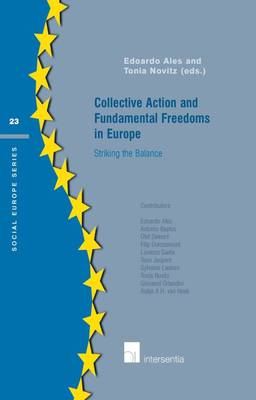
- Retrait gratuit dans votre magasin Club
- 7.000.000 titres dans notre catalogue
- Payer en toute sécurité
- Toujours un magasin près de chez vous
- Retrait gratuit dans votre magasin Club
- 7.000.0000 titres dans notre catalogue
- Payer en toute sécurité
- Toujours un magasin près de chez vous
Description
Recent cases decided by the European Court of Justice have raised crucial issues regarding the scope for collective action in Europe. In this context, this collection of essays investigates treatment of the right to strike in seven Member States of the European Union: Belgium, France, Germany, Italy, Spain, the Netherlands and the United Kingdom. Each national report examines how legal regulation seeks to address conflicting interests, namely those of employers, workers and the public at large. Each report also outlines the potential impact of EU jurisprudence in that country.
Striking the balance between domestic entitlements to take industrial action and the protection of EU fundamental freedoms is far from straightforward. The problem of balance is considered further in three supplementary essays. The first of these assesses the position of those engaged in or affected by collective action under conflict of law principles stated in Rome II. The second essay provides a comparative analysis of the constitutional status (or otherwise) of collective action. The volume ends with an essay which subjects to scrutiny the assumptions made by the European Court of Justice in the Viking and Laval judgments, which would seem to be questionable, in light of the national reports presented in this book.
‘Comparative labour law emerging from this book [...] launches new ideas and sends new messages, well beyond close self-referential circles, out into the borderless community of scholars, social partners and economic actors, interested in pursuing social justice.’
From the preface by Silvana Sciarra
‘[This book] undeniably contributes added value to the debate.’
Alexandre Defossez in 47 RTDeur 1 (2011)
‘I can strongly recommend that any interested scholar read this book very carefully. It is not possible in such a short space - as a review - to give justice to the richness of details and wisdom from all contributors and also national social features which are depicted in the book. However, the book sheds more light on the issues that have been discussed in scholarly circles since the infamous trilogy of cases was handed down by the ECJ in 2007 and 2008.’
Ronnie Eklund, in EuZA (2103) 564
Spécifications
Parties prenantes
- Auteur(s) :
- Editeur:
Contenu
- Nombre de pages :
- 274
- Langue:
- Anglais
- Collection :
Caractéristiques
- EAN:
- 9789400000728
- Date de parution :
- 18-06-10
- Format:
- Livre broché
- Poids :
- 475 g

Les avis
Nous publions uniquement les avis qui respectent les conditions requises. Consultez nos conditions pour les avis.






